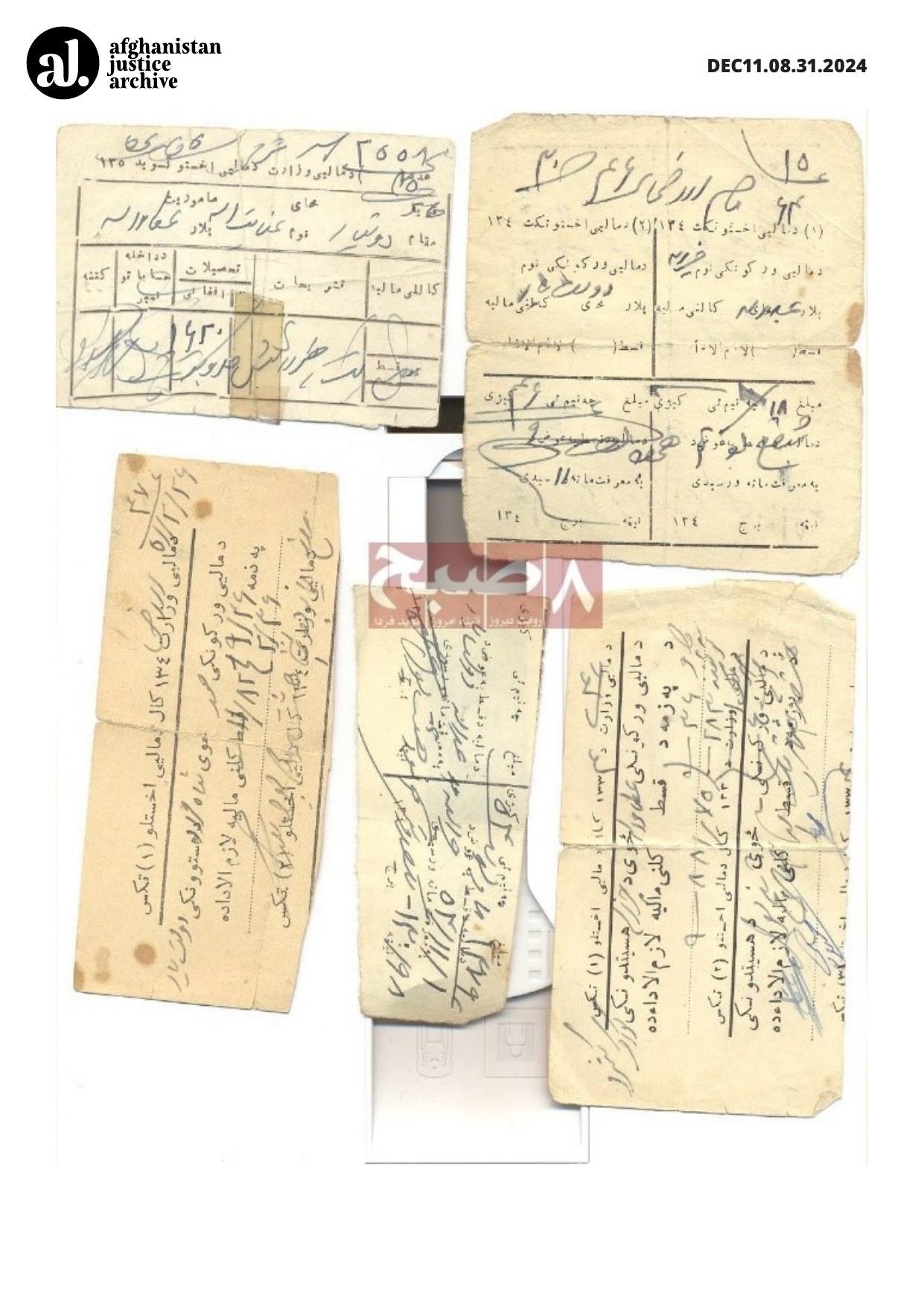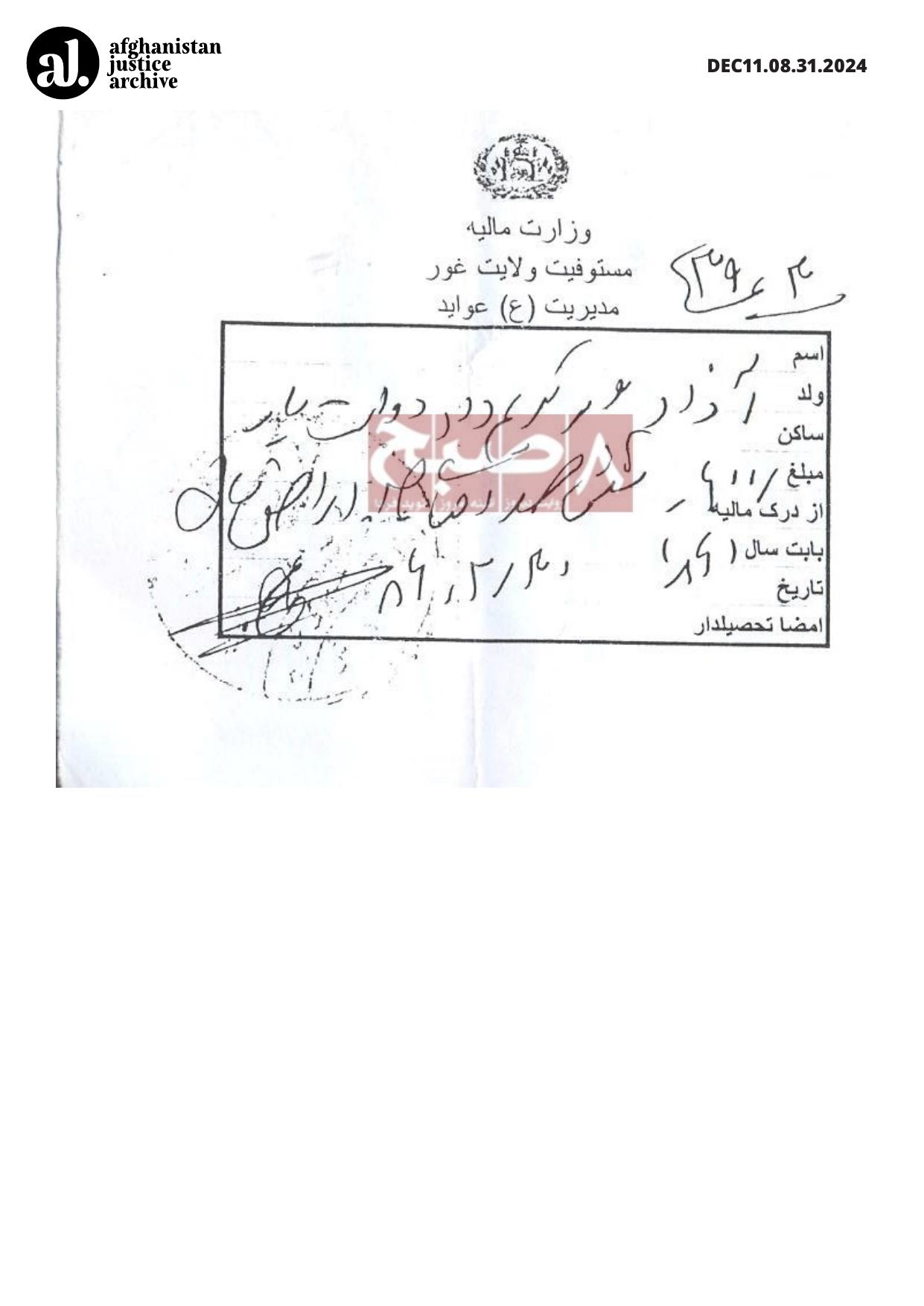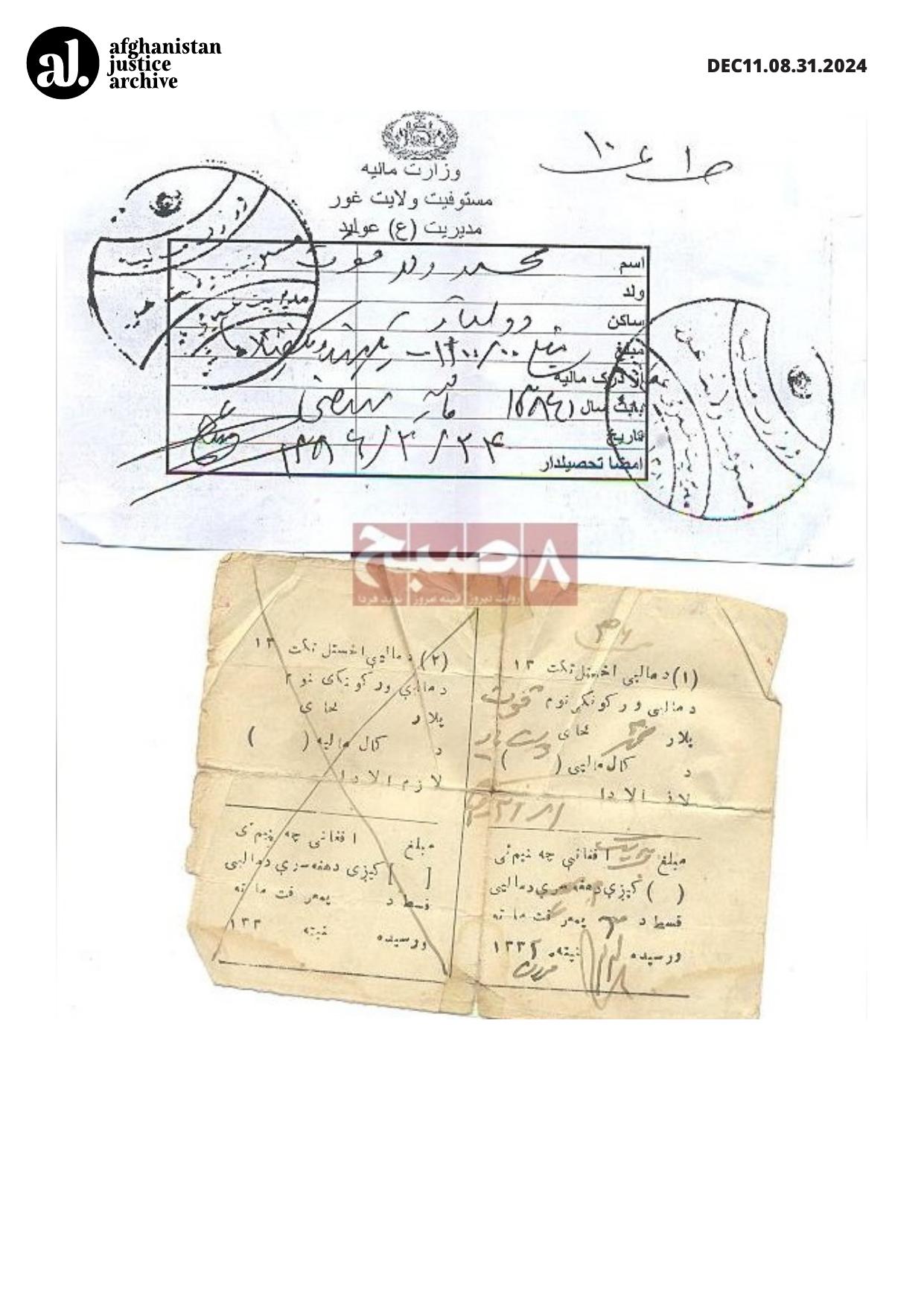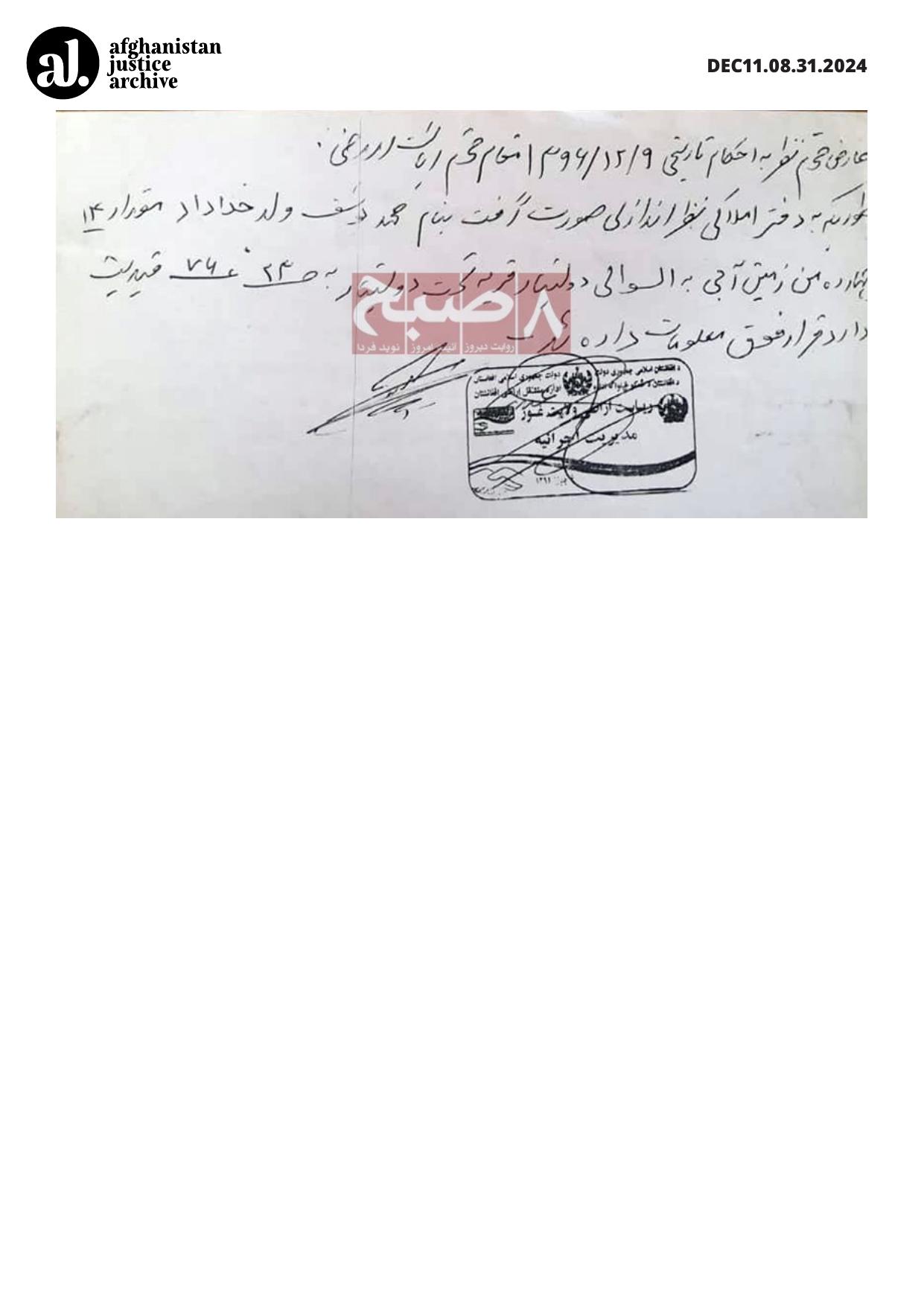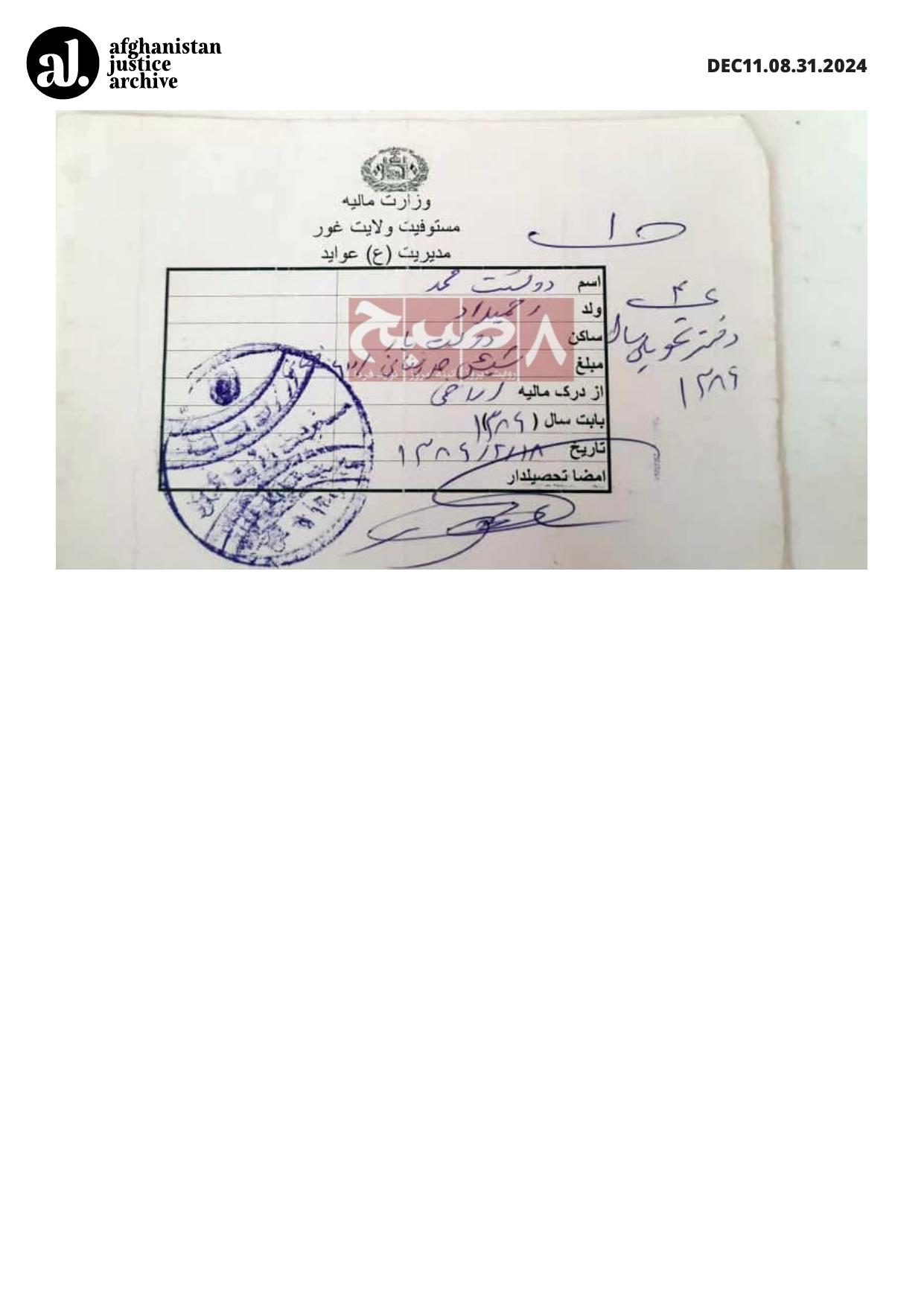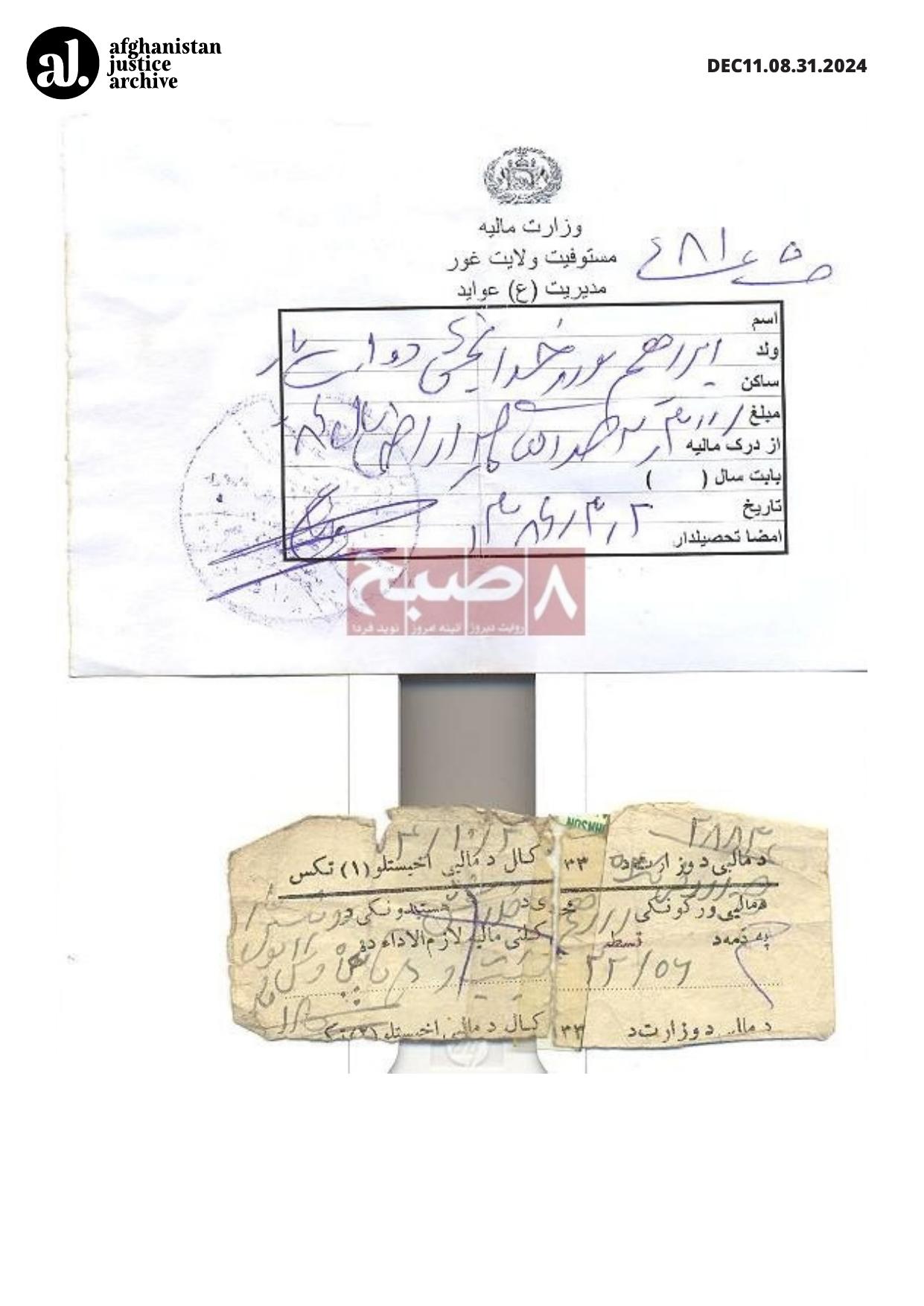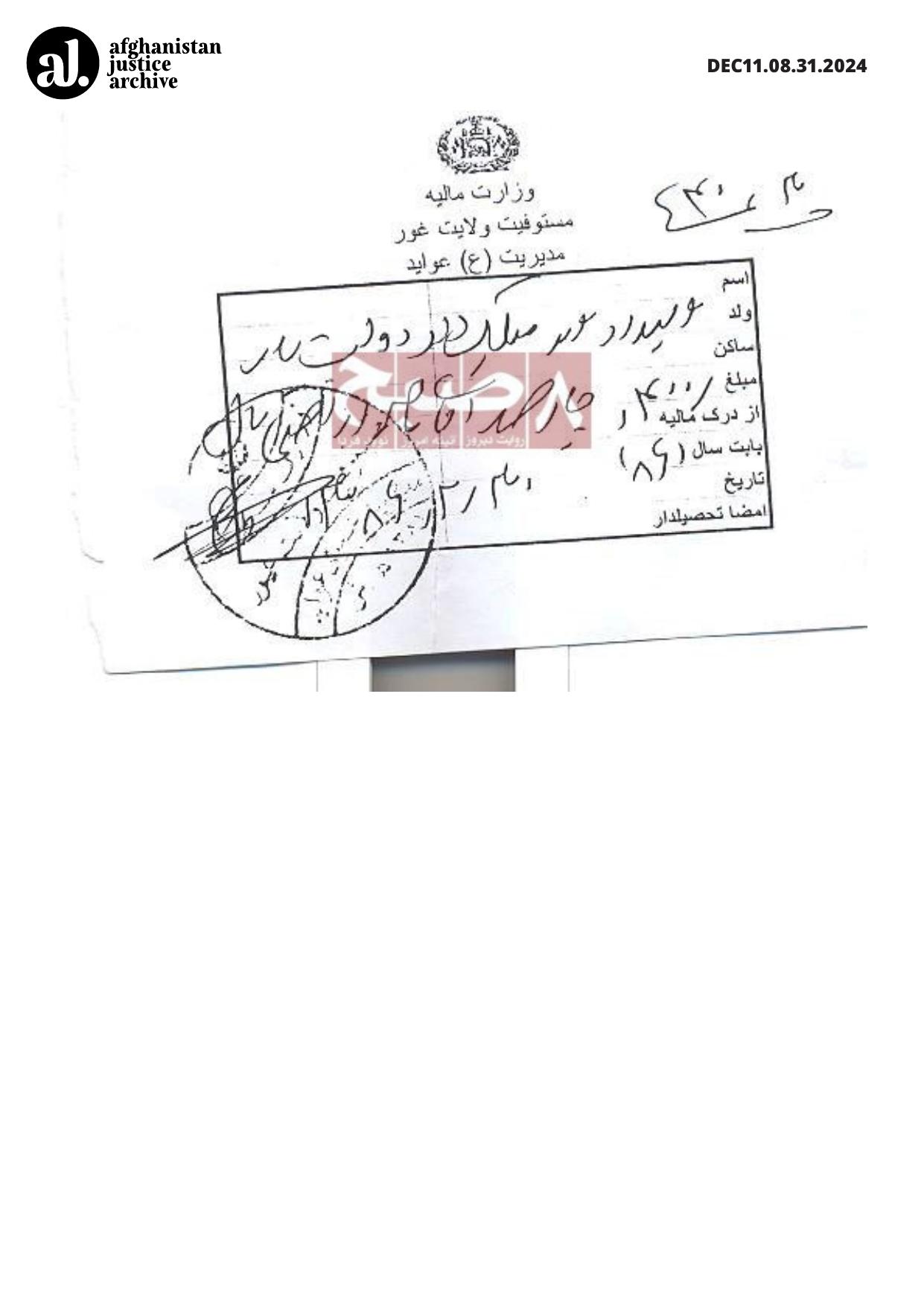Decree
Decree Translation
The Taliban governor in Ghor, in collaboration with the Ministry of Tribal Affairs, has issued an order for the forced eviction of approximately 600 families from the Dawlatyar district. According to the directive, the local residents are required to vacate the area immediately. They are prohibited from taking their belongings, agricultural products, or even the doors and windows of their homes, and must leave with nothing. Sources indicate that Ahmad Shah Din Dost, the Taliban governor in Ghor, invited Noorullah Nuri, the Minister of Tribal Affairs, to the province, where a decision was made to forcibly relocate the inhabitants. The disputed land, which covers approximately 800,000 jeribs (a local unit of land measurement) of irrigated, rain-fed, and fallow land in the southern part of Herirod in the Dawlatyar district, has been the subject of a longstanding dispute between the Taimani tribe and other groups, including 50 households from the Sardar tribe. According to local sources, who wish to remain anonymous, the dispute had been previously referred to the Taliban's religious scholars' council in Ghor by order of Mullah Haibatullah, the supreme leader, and the Taliban's chief judge. A ruling had been issued by the council; however, the governor of Ghor rejected this decision. The sources further state that despite the council’s original resolution, the governor facilitated a meeting with the Minister of Tribal Affairs, who exerted pressure on the council to revise its ruling. Consequently, the council’s decision was altered, and between 700 to 800 households, including those residing in the Keshro Valley, are now being forcibly relocated. These families have inhabited the valley for over 500 years, with the graves of their ancestors serving as evidence of their ancestral ownership of the land.
This directive—issued by the Taliban governor of Ghor in coordination with the Ministry of Tribal Affairs—constitutes a clear example of state-sanctioned arbitrary punishment and forced displacement. Despite a prior ruling by the Taliban's own religious council in favor of the affected families, the local governor and minister pressured the council to reverse its decision, overriding judicial consistency and undermining rule of law. The eviction of 600–800 families, many of whom have lived in the area for centuries, was carried out without legal due process, and under extreme conditions: families were prohibited from taking basic belongings or agricultural goods, stripping them of livelihood and dignity. The decree reflects both collective punishment and the use of coercive administrative power to resolve inter-tribal land disputes in favor of politically dominant groups. It raises serious concerns under international human rights law, especially in relation to property rights, access to justice, and protection against forced eviction without legal remedy.
